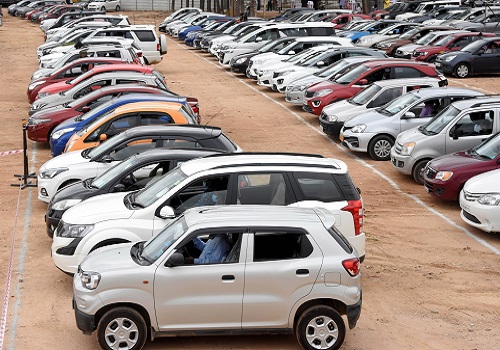Automobile exports from India decline 28% in Q1FY24: SIAM

Society of Indian Automobile Manufacturers (SIAM) in its latest data has indicated that automobile exports from India declined 28 per cent in the April-June period this year (Q1FY24) hit by monetary crisis in Africa and various other developing countries. Overall exports stood at 10,32,449 units in Q1FY24 as compared with 14,25,967 units in the same period of last year.
According to the data, total passenger vehicle shipments stood at 1,52,156 units in the June quarter, down 5 per cent from 1,60,116 units in April-June period of 2022. Passenger cars shipments dropped to 94,793 units in the period under review from 1,04,400 units in the year-ago period. Similarly, utility vehicle shipments saw a marginal decline to 55,419 units in the first quarter this fiscal as against 55,547 units in the same period of last year. Two-wheeler exports declined 31 per cent to 7,91,316 units in the April-June period from 11,48,594 units in the year-ago period. Similarly, commercial vehicle shipments dipped to 14,625 units in the first quarter, down 25 per cent from 19,624 units in the April-June period of 2022-23 fiscal. Three-wheeler exports also declined 25 per cent to 73,360 units in the period under review from 97,237 units in June quarter of last fiscal.
SIAM Director General (DG) Rajesh Menon has said that all vehicle segments have seen a drop in exports in the first quarter, as there has been a devaluation of currencies in many destinations of exports, especially in Africa and other developing countries. He also noted that these countries have been facing challenges of availability of foreign exchange, which is limiting the sales for vehicles and countries are focusing more on imports of essential items, though the demand for vehicles from consumers exists in these markets.










Tag News

Monthly Debt Market Update, September 2023: CareEdge Ratings













